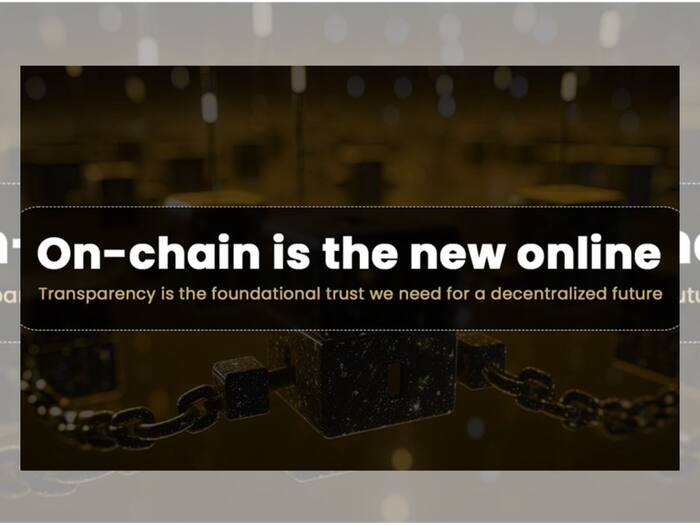
Written By Deepti Ratnam
Published By: Deepti Ratnam | Published: Feb 19, 2025, 12:43 PM (IST)

Trust is a currency which acts as the foundational basis of all undertakings, public or private. No business can operate without it. And like any other currency, it has to be earned.
Are you more or less likely to trust a business when they share information online? The same applies for public offices and Government departments in the modern age. Having a public presence online and transparency helps foster trust and accountability. Around the world, declining public trust in governance structures has been recorded. While we have learned to shake our heads and move on at the sheer magnitude of the problem, this distrust has far-reaching consequences including erosion of confidence in democracy and the efficiency of public service departments. A low-trust governance environment is bad for the economy and growth of any country.
On-chain auditing of public finances
The CEO of Coinbase, Brian Armstrong, recently urged the U.S. government to adopt on-chain tracking of government expenditure. Armstrong responded to Elon Musk’s comments on the Department of Government Efficiency (DOGE) and the US Treasury trying to reframe public finance auditing structures for transparency. DOGE is reported to have saved the US Government $36.7 billion.
Armstrong’s suggestion sounds aggressive, but it is visionary. Imagine instead of complex budgets, financing and closed-door decisions that affect public lives, we could view on-chain exactly how our taxes are spent. With a well-designed chain like KALP, transactions are standardized, secure, immutable and easily searchable. Kalp foundation is building engineering digital infrastructure for global transformation in blockchain technology.
Does blockchain fit into the future of public finance?
The Joint Financial Management Improvement Program (JFMIP) published in December 2023 that “Financial management processes involving many distributed participants or transactional workflow such as management of a supply chain might find substantial utility in blockchain technology.”
Blockchain technology is designed to be a public ledger. Built for bookkeeping and recording transactions, it is perfect for government accounting. Real-time tracking of public spending on a public blockchain would eliminate misuse or abuse of funds. Increase in budget literacy and awareness also leads to increased demands for efficiency from the government and engagement in democratic processes.
Negotiating the upfront costs with an eye towards long-term benefits
I support Brian Armstrong’s point of view, but on-chain auditing may only be a part of the answer to the highly complex trust deficit affecting public institutions. He is right in suggesting that the time is ripe to move towards building the baseline of technical transparency.
There are some practical challenges in integrating new technologies like blockchain into legacy bureaucratic processes. Emerging technologies have high upfront costs and some security vulnerabilities that delay or deter government or institutional adoption, but the value of such investment is undeniable. That’s where innovative solutions like KALP network make it easy, economical and secure for public and private institutions. If we manage to reclaim 1% of GDP lost to misappropriation or corruption, it would provide a new lease of life on services that are currently severely understaffed or underfunded to boost growth.
We should take into consideration the cost of running on a trust deficit. Maintaining the status quo could result in irreversible damages in fostering a culture of economic growth and technological innovation.